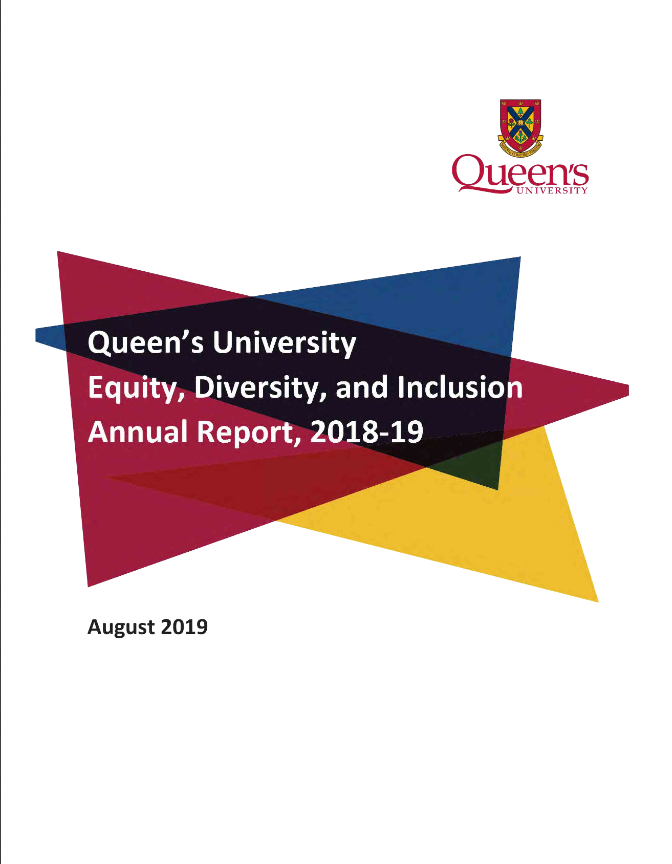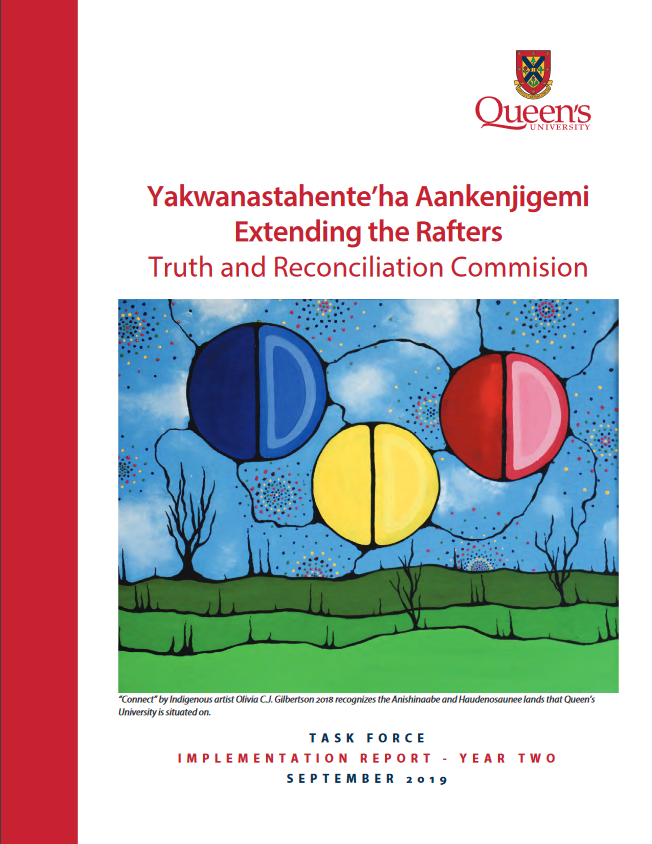Queen’s shares yearly reports on equity, diversity, inclusion, and indigeneity
November 29, 2019
Share
Over the past year, the Queen’s community has continued to work together to advance equity, diversity, inclusion, reconciliation, and decolonization across campus, in an effort to ensure our university is a welcoming and safe place for everyone. Two new annual reports published this fall detail our progress, achievements, and opportunities for future growth.
Equity, Diversity, and Inclusion
 Queen’s made significant strides in advancing its commitment to welcoming and supporting students, staff, and faculty from a range of cultures, religious affiliations, socioeconomic backgrounds, gender identities, and sexual orientations.
Queen’s made significant strides in advancing its commitment to welcoming and supporting students, staff, and faculty from a range of cultures, religious affiliations, socioeconomic backgrounds, gender identities, and sexual orientations.
“During the 2018-19 academic year, representation of equity-seeking groups within Queen’s staff and faculty has increased, and many engaging programs and events have helped to spark conversations about culture, identity, and inclusivity,” says Teri Shearer, Deputy Provost (Academic Operations and Inclusion). “Queen’s is also proud to have created two new senior positions designed to help carry this momentum forward.”
The 27-page Equity, Diversity, and Inclusion Annual Report reveals a number of encouraging statistics and highlights initiatives, events, announcements, training, education, and research that have strengthened Queen’s University’s capacity to empower its community members.
Some of the most notable actions include the university’s signing of the federal government’s Dimensions EDI charter, and the Faculty of Health Sciences’ formal letter of apology to those affected by a 1918 ban of Black medical students.
Read the report in its entirety.
Truth and Reconciliation
 The second annual Truth and Reconciliation Commission (TRC) Task Force’s implementation report notes that Queen’s made significant progress in advancing recommendations put forth by the task force’s Yakwanastahentéha | Aankenjigemi | Extending the Rafters report.
The second annual Truth and Reconciliation Commission (TRC) Task Force’s implementation report notes that Queen’s made significant progress in advancing recommendations put forth by the task force’s Yakwanastahentéha | Aankenjigemi | Extending the Rafters report.
Extending the Rafters, published in March 2017, outlined 25 recommendations for sustained institutional change, including strengthening relationships with Indigenous communities, promoting a deeper understanding of Indigenous histories, knowledge systems, and experiences, and creating a campus that values and reflects Indigenous histories and perspectives.
“I am happy to see all of the positive change that is taking place across our campus in response to the TRC Task Force recommendations and the efforts being made at decolonization, reconciliation, and inclusion,” says Kanonhsyonne (Janice Hill), Associate Vice-Principal (Indigenous Initiatives and Reconciliation). “I continue to believe that it is imperative for students, staff, and faculty to have an understanding and appreciation for our shared history as treaty people, both Indigenous and non-Indigenous, because many go on to be decision makers and leaders beyond Queen’s. I look forward to continuing this important work together with the entire campus community.”
Among the efforts outlined in this year’s update were a number of standout activities, including a ‘polishing the chain’ ceremony during a Senate meeting, reconfirming the promise of friendship between Queen’s and Indigenous peoples; the addition of four hours of paid leave for employees seeking to attend National Indigenous People’s Day events; and the creation of the Indigenous Languages and Cultures certificate and an Indigenous Language revitalization guide.
The Isabel Bader Centre for the Performing Arts hosted the Ka’tarohkwi Festival of Indigenous Arts, and Agnes Etherington Art Centre hosted Soundings: An Exhibition in Five Parts by Dylan Robinson, Queen’s Assistant Professor and Canada Research Chair in Indigenous Arts. A new Queen’s Research website launched, including a story outlining the work of Indigenous scholar Lindsay Morcom, and the office of Indigenous Initiatives created the Indigenous Visitorship Fund to support Queen’s professors in bringing more Indigenous speakers and experts into classrooms.
You can read more about these efforts and updates on all of the TRCTF recommendations in the full report.